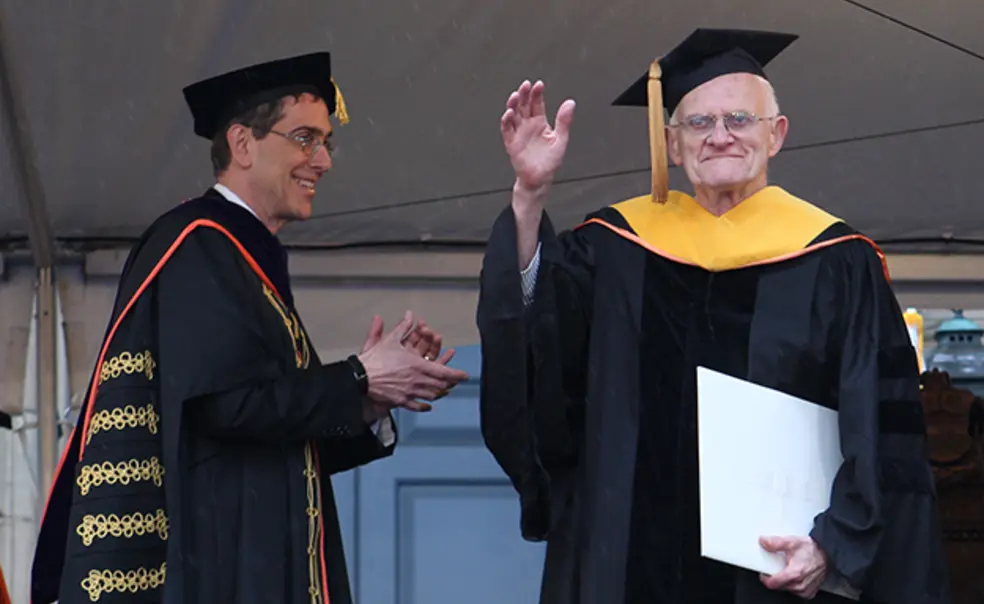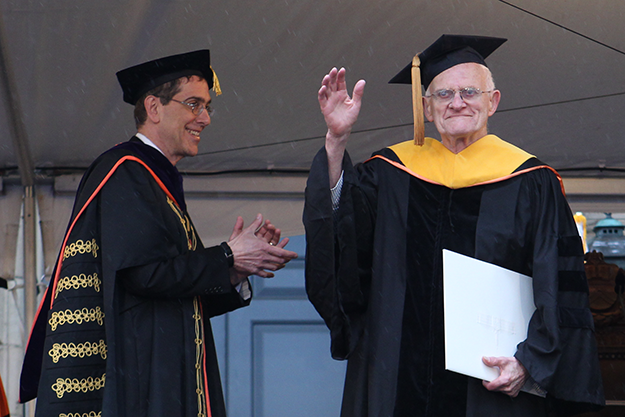Tiger of the Week: Engineer David Billington ’50
In presenting honorary degrees at Commencement, Princeton honors a wide range of notable individuals, from Supreme Court justices to entertainers and athletes. The tradition also allows the University to spotlight exceptional people on campus — a list that in recent years has included former men’s basketball coach Pete Carril and departing Princeton President Shirley M. Tilghman.
Last week, a few days after his class marked its 65th reunion, longtime engineering professor David Billington ’50 received an honorary Doctor of Science degree for his inspiring work in the classroom and the lab. “[H]e introduced us to the engineering pioneers who revolutionized the world and opened our eyes to the creativity of engineering at its best,” the degree citation read.
Billington, the Gordon Y.S. Wu Professor of Engineering, Emeritus, taught at the University from 1960 through 2010. Early in his career, he was chosen to teach a class on structures in engineering to graduate students in the architecture school. The architects grew bored by the technical formulas, Billington told PAW’s Kathryn Beaumont ’96 for a 2003 feature, and clamored to “study something beautiful.” They showed him pictures of Swiss engineer Robert Maillart’s thin, concrete bridges sweeping across ravines and through the mountains of the Swiss countryside. “We all have some aesthetic sensitivity and respond to beauty in various forms,” Billington says. “But then I wanted to see if this was good engineering. And I realized that Maillart was the best technical engineer.”
Billington’s teaching celebrated Maillart and others who blended technical expertise and aesthetic beauty. And like a graceful, well-constructed bridge, his work has spanned generations: At his retirement celebration, the professor received a poetic tribute from Randy Evans ’69 and his daughter Annie ’04, two alumni of his courses.
READ MORE: The full degree citation for David Billington, Doctor of Science
“An epic scholar and legendary teacher, he inspired students, colleagues and designers to integrate the discipline of engineering with the play of art. From Fulton’s steamboat to Maillart’s bridges, he introduced us to the engineering pioneers who revolutionized the world and opened our eyes to the creativity of engineering at its best. ‘Structural art’ is his vocabulary for bridges, towers, and vaults that embrace efficiency through form, economy through construction, and elegance through structural expression. His legacy is the generations of students whose lives were formed and shaped by exposure to his love for and deep appreciation of engineering as art.”













No responses yet